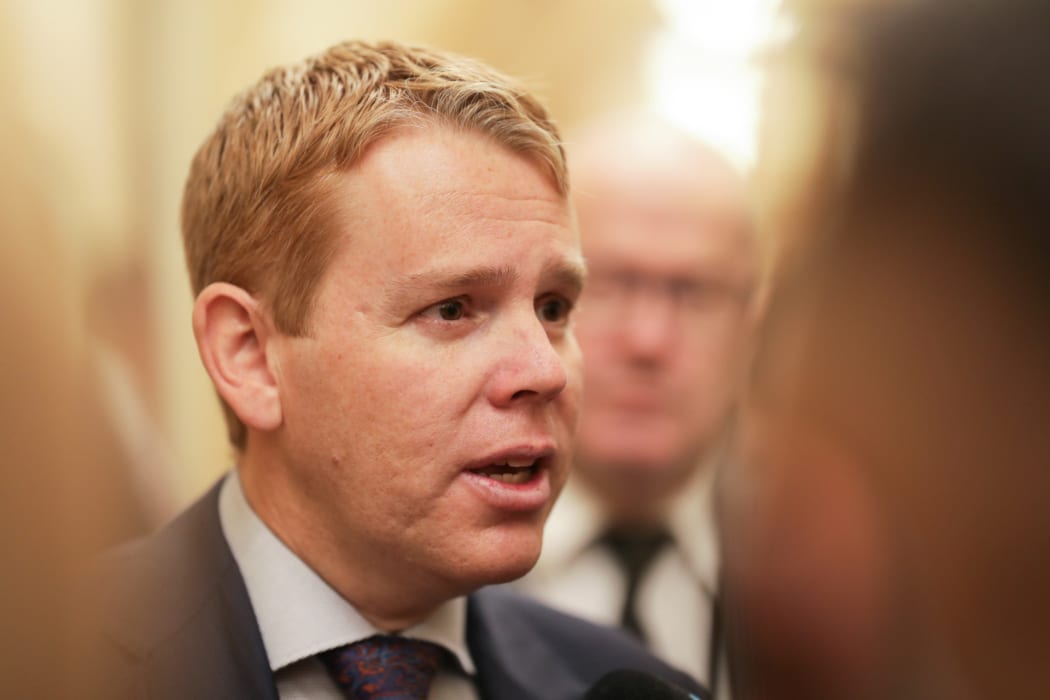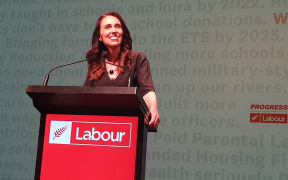A big new education bill aims to loosen the laws for teachers using force on children, make religious instruction opt-in, and bring more focus on the Treaty.

Education Minister Chris Hipkins. Photo: RNZ / Dom Thomas
The Education and Training Bill 2019 was introduced in Parliament yesterday.
Restraint and use of force
Education Minister Chris Hipkins told RNZ's Morning Report the proposed change to use of force were for safety.
"I think there was acceptance when the law change was made by the last government that some schools were engaging in practices that weren't acceptable.
"Seclusion of students is a very unacceptable practice - that's basically locking them in a room where they can't get out by themselves. That was outlawed by the last governmnet and we fully supported that change, but I think the pendulum swung a little bit far where they said a teacher couldn't in any way physically restrain a student unless there was immediate physical danger to that student."
The bill's wording is quite broad and proposes that "intervening to prevent harm can include harm to safety or wellbeing of the student or another person including harm caused by significant emotional distress".
Mr Hipkins said that would allow teachers to step in when the student posed a risk "that might not necessarily just be physical harm".
He said teachers had raised concerns that the existing rules were confusing and they felt unable to intervene.
"If a student has just completed their work - something they've worked for weeks on - and then another student decides that they're going to smash that work up then actually under the rules as they stand now a teacher could not intervene to stop that from happening," he said.
Mr Hipkins said the education legislation had to rely on what was in the Crimes Act.
"What we don't want to do also is give teachers the impression that they can do things that might then result in them falling foul of the Crimes Act.
"Teachers do get training in how to minimise the amount of physical force that they need to use, but from time to time I accept that it will be necessary for them to intervene more physically."
Opt-in system for religious instruction
Another aspect that the bill is proposing is that religious instruction be on an opt-in basis.
Mr Hipkins said many schools were already notifying parents, but some were not, and this move was intended to rectify that.
"We're simply clarifying that in order for schools to bring someone in to do religious instruction they need to alert the parents to the fact that they are doing that and ensure the parents consent to that happening," he said.
Putting the Treaty of Waitangi at the centre of education
Another of the changes is to specifically put the Treaty of Waitangi at the centre of education.
"Schools are not necessarily culturally responsive, so they're not necessarily embracing the background, the culture of every student who comes throguh the school gate ... and Māori students are particularly disadvantaged by that," Mr Hipkins said.
He said that would be up to the board to enforce.
No extra maintenance funding for integrated schools
The government also recently announced a nearly $400m funding boost for state schools to help maintain their buildings.
That was not part of the Education and Training Bill. Regardless, principals from state-integrated schools have argued they should also be eligible for a funding boost, but Mr Hipkins rejected that.
He said integrated schools were given maintenance funding year on year, on a similar basis to state schools.
"They get about $700 per student in maintenance funding now - the funding we announced at the weekend goes into state funded schools. We [the government] own all the buildings and facilities in state-funded schools for upgrade work. Integrated schools, we don't own all of those buildings."
He said he did not think it was penalising the students.
"If you look at the quality of state-integrated school biuldings areound the country there are some exceptionally high-quality state-integrated school facilities that actually many of the neighbouring state schools are very envious of," he said.
"This is about saying 'we've got some very run-down state schools that we need to upgrade'."
"I'm not gonna proffer a legal opinion but the advice I've received is that we're perfectly within our rights to do what we've done."


